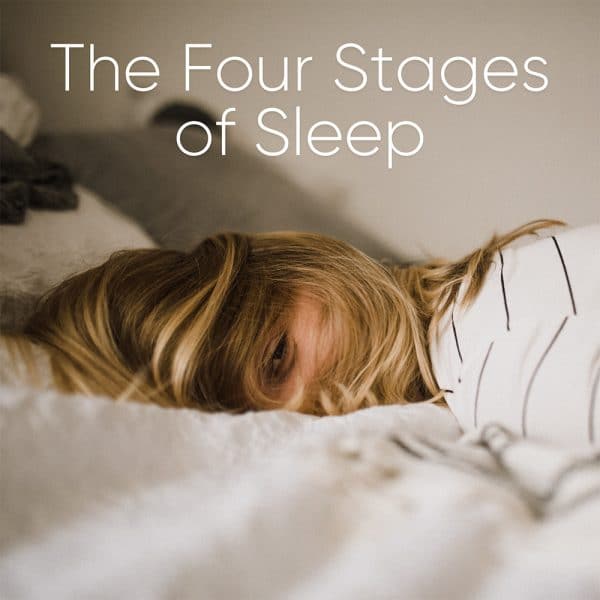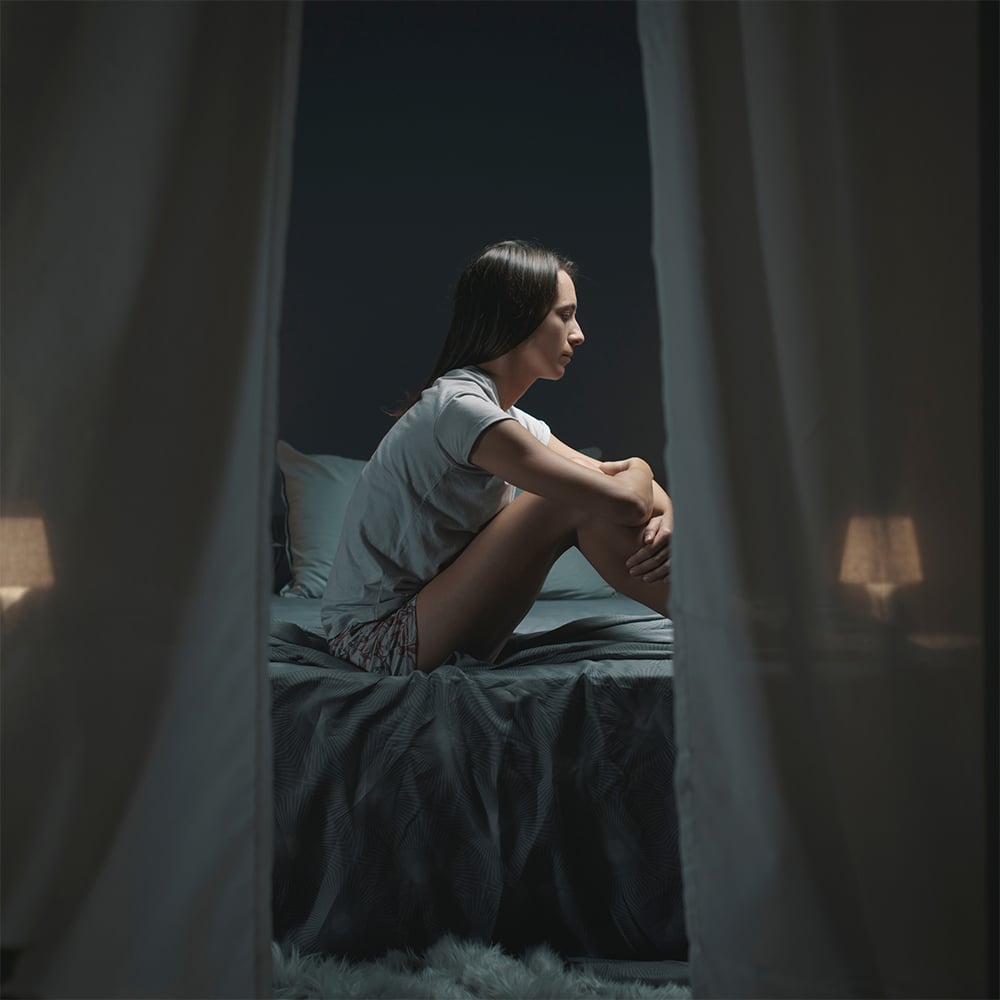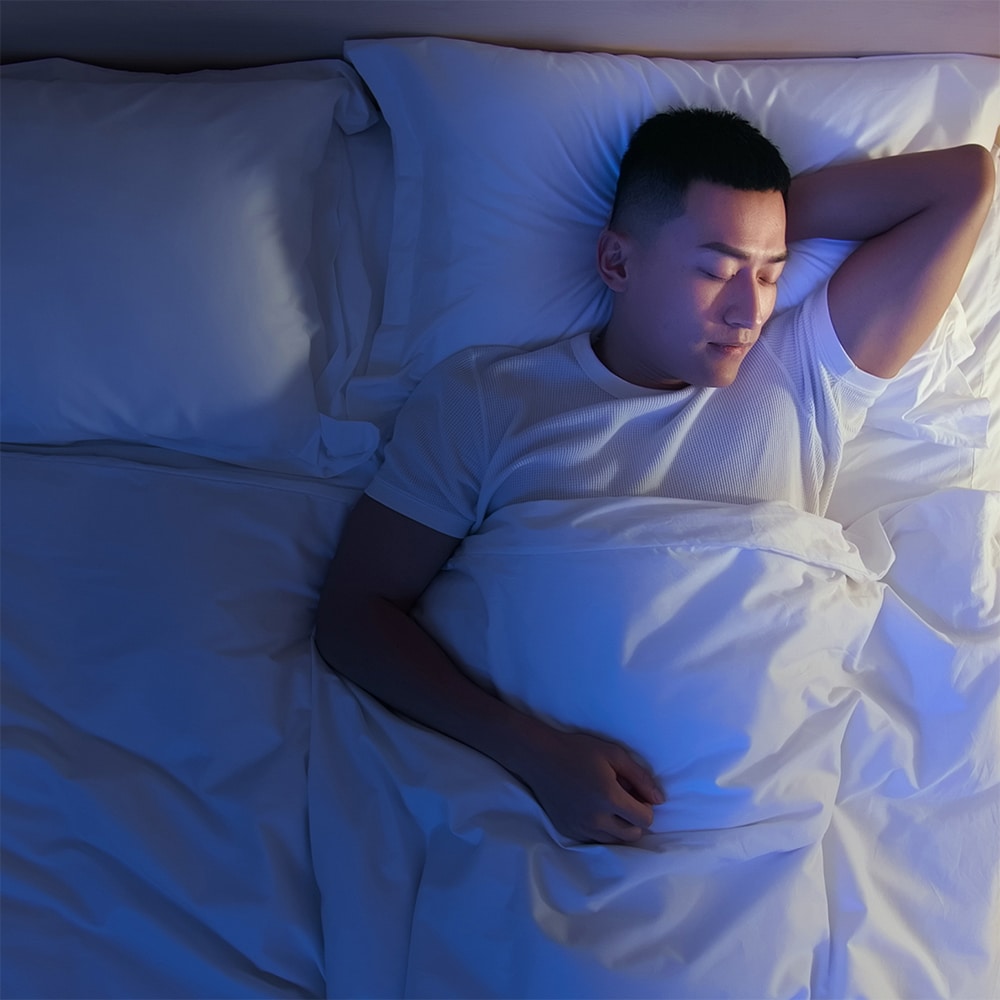6 MOST BURNING QUESTIONS
ON SLEEP. ANSWERED
The Daily Doze
A mysterious aspect of our lives, sleep enables us to rest and recharge, yet isn’t fully understood.
Decades of research have confirmed the value of sleep in our lives. Beyond a doubt, sleep is vital. We cannot say it enough times: you need to sleep, and you need to sleep well.
Curious minds don’t rest when they have questions begging to be answered, however!
We’ve put together a list of questions from our Sleep Ambassadors. They submitted all kinds of questions about sleep, and our resident sleep experts answered them. From proper sleep protocol to why you’re so hot at night, this knowledge-packed blog post addresses large and small questions on sleep.
We guarantee you’ll be much better equipped with the valuable information below -- so don’t “sleep” on giving it a read!
Q1: “What are the different levels of sleep, and what is the best level?” -- Jaclyn, @jaclynreneewellness
A: There are 4 sleep ‘levels’ or stages that are categorized by the brain activity that happens during sleep. Sleep lacks uniformity, and does not go in a linear progression with one level transitioning to the next. Your total sleep can go over several rounds of each cycle. A person experiences an average of 4 to 6 sleep cycles per night.
All stages of sleep bear responsibility for allowing the brain and body to recuperate, with Deep Sleep and REM found to have the greatest benefits. Understanding sleep cycles allows us to see how sleep impacts a person’s physical and mental health. Here they are in more detail:

Stage 1:
The shortest stage is first, lasting 1 to 5 minutes, in which the person hasn’t fully relaxed but the body and brain activities start to slow down, with periods of brief movements. People wake easily during this stage. Undisturbed, the sleeper will move quickly to stage 2.
Stage 2:
This 10- to 25-minute stage is when the body and mind enter a more subdued mode, with a drop in temperature, slower breathing, slower heart rate and relaxed muscles. Brain waves slow down, with short bursts of activity that suppress waking due to external stimuli.
Stage 3 or Deep Sleep:
Every stage gets progressively longer, and this one lasts about 20 to 40 minutes. The pulse, breathing, muscle tone and the whole body relax further. You can tell someone is experiencing this stage by the distinctive pattern in the delta waves in brain activity. This stage is crucial in restorative sleep, allowing the body to recover and grow. It strengthens the immune system and other key bodily processes, contributing to creativity, memory and insightful thinking.
Stage 4 or REM Sleep:
This more famous stage doesn’t come until you’re at least 90 minutes asleep, and lasts up to an hour. During REM sleep, brain activity picks up -- nearing our waking levels. The whole body experiences temporary paralysis, or atonia, except for the eyes and the muscles that control breathing. One experiences vivid dreams during this stage. Studies show that REM sleep aids in cognitive functions such as creativity, learning and memory.
Q2: “What’s the universal standard for how much sleep you need for optimal function? Is it the same for everyone, or does it vary from person to person?” -- Jo, @footlessjo
A: 7 to 9 hours of sleep a night is the universal average or standard needed for most adults. Babies, children and teens are recommended to have more hours of sleep to enable their growth and development.
A minority of the population can do with just 5 to 6 hours of sleep each night, but this is a small percentage. These outliers are found to have a rare mutation in their genes, making them naturally short sleepers without compromising health or lifestyle.

Q3: “How does poor sleep alignment affect your body and health?” -- Abri, @teamabri
A: Great question! Spine alignment is usually the last thing on our minds when we hit the sack -- but it’s very important! Sleep posture can be the cause of chronic back pain that keeps you awake at night, even affecting your waking daily activities.
It is important to keep your spine in a neutral position. Sleeping on your back is optimal, to minimize pressure points and encourage the proper alignment of internal organs.
When you ‘toss and turn’ in the night, it’s the body’s natural way of reducing the counter-pressure caused by lying down in a less-than-desirable position or sleeping on a poor sleep surface.
To know more about choosing the proper sleep surface versus a poor one, click the link here. This page can also aid in knowing the right sleep mattress per height or weight of the user!

Q4: “How often should you replace your mattress?” -- Cole and Charisma, @roll.with.cole
A: Beginning in 2001, virtually all national brands and off-brand retail mattress companies began utilizing lighter, cheaper foams designed to break down faster so they could sell you more beds during your lifetime. In fact, you can spend up to $2000 for a retail mattress from one of these competing retail brands, and it will begin to break down within 6 to 18 months.
As the mattress breaks down, the increased counter-pressure can twist the spine, as it resists the weight of the shoulders and hips. Poor support contorts the back and body, resulting in bone and muscle stress, discomfort and poor sleep, causing you enough pain that you are forced to replace the mattress -- buying a new one.
The general rule (created by large mattress retailers) is to replace your mattress every 6 to 8 years. Observe your own sleep patterns, however, to know for yourself. If your mattress is no longer providing you good-quality sleep, it’s a sign that you should replace it.
Q5: “Why do I get so hot at night?” -- Kate, @katelazarski
A: Due to your body's natural hormones, your core temperature drops at night time to prepare your body for sleep. This change in body temperature helps you snooze better. It then rises again in the morning, preparing you to wake up. Some people have particular sensitivity to this change, leading them to wake up in sweats during the early hours. This is a common symptom among women and men.
It can be natural to feel hot at night due to natural hormones and bodily changes, but there’s also a chance it might be an underlying symptom. Many medical conditions and diseases can cause night sweats. For women, it could be a sign of perimenopause or menopause; for anyone, it can be caused by certain medications, hormone problems, low blood sugar or neurological problems.

Q: “What does sleep do, why do we need sleep, and why do we literally die if we don’t get it? I’ve heard stories in several places, and of course the army has made me wildly sleep deprived before, so I’ve always wondered why we need it. Or why we’re not nocturnal like most other predatory species?” -- Jon Francetic, @jon_francetic
A: That’s a lot of questions, so let’s break it down one by one.
What does sleep do? --
Think of it as a ‘recharge mode’ for your mind and body. When you sleep, you undergo a series of bodily changes as the brain and body slow down and recover, promoting better mental and physical performance for tomorrow and over the long-term.
Why do we need sleep? --
Sleep is essential to the brain and body’s ability to recuperate, so you can be alert and focused when you wake up. Healthy sleep will keep your body protected against many diseases. Without enough sleep, the brain and body cannot function properly.
Do we die if we don’t get sleep? --
Our brain will eventually begin to stop functioning properly, which can lead to organ failure and, in rare cases, death. Your cognitive ability drastically decreases, impacting your focus, reaction time and perceptions, which can make you more prone to accidents and dangerous situations. Further, sleep deprivation can also cause hallucinations and severe paranoia, disconnecting you from reality.
Why aren’t we nocturnal? --
This is simply due to human evolution and the circadian rhythm or 24-hour cycle that’s heavily dependent on how much light enters the eye. In a dark atmosphere, the human brain releases different hormones and slows down body and brain activity. Darkness cues lower blood pressure, stress levels and body temperatures, preparing the body for rest.

Keep Exploring the Wonders and Mysteries of Sleep
What about you, do you have any curious questions on sleep? Let us know in the comments or on social media -- we’d love to hear your most pressing questions and thoughts!
If you want to understand your sleep even better, our Majestic Beds Team is here to help! Feel free to contact us to speak with our Sleep Experts. We can help you find the best sleep solution for your needs.
Sign Up for Exclusives and Updates
Invest in rest. A better sleep means a better life. To get the latest information on sleep science and other interesting info, click below to get notified about new blog updates!
